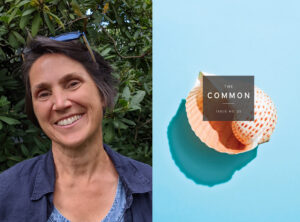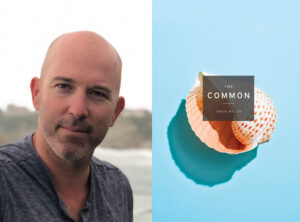Transcript: Tom Sleigh Podcast
Tom Sleigh speaks to managing editor Emily Everett about his poems “Last Cigarette” and “Apology to My Daughter,” which appear in The Common’s fall issue. In this conversation, Tom talks about his time as a journalist in Syria, Lebanon, Somalia, Kenya, Iraq, and Libya, and how that experience comes out in his poetry. He also discusses the process of putting together his new poetry collection from Graywolf, The King’s Touch, and how he sees the current Ukrainian refugee crisis playing out differently than crises in other parts of the world with less established infrastructure.



















